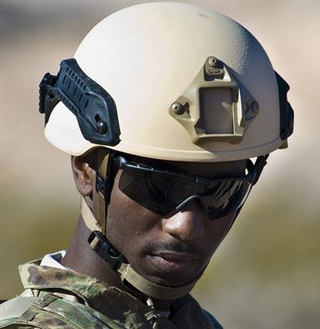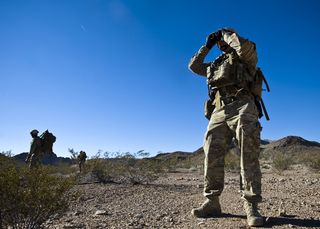Intelligence
War, Intelligence Collectors, and Inevitable Mortality
How do they do their job effectively in the face of death?
Posted August 27, 2017

Imagine it’s your job today to collect information or “intelligence” in a village that’s often the source of mortar attacks on your camp, and where one of your buddies was just killed by an improvised explosive device (IED). In other words, your job is to go into a dangerous place and talk with people who may want to kill you. Your job constantly reminds you of your own mortality.
Yep, the thought of this job makes me a little anxious, even though I’m sitting at my glass-top desk thousands of miles and lots of birthdays away from any possible involvement in something like this. It does this because it reminds me of the inescapable reality of my own mortality.
But this is the job of US Army Human Intelligence Collectors, who provide to friendly forces and allies information on enemy forces and their capabilities and intentions along with potential battle sites.
HOW DO THEY DO IT?
The question is, how do the anxiety and stress induced by the death that these soldiers are constantly exposed to affect their ability to do their job of collecting accurate and useful information on the enemy? And this is the question Jay Heslen at Augusta University sought to answer in his latest research.
This is a particularly interesting question because figuring out what other people are likely to do, in this case, intelligence collection, involves a lot of cognitive processing. And we know that anxiety takes a toll on people. In general, anxiety is related to physical responses involved with the fight or flight response and the release of cortisol. These in turn can be tied to fatigue, inability to concentrate, and short-term memory loss or, put another way, poor intelligence collection.
So Jay, who has been involved with national security for most of his professional life, conducted an experiment using a group of college-student subjects. He suspected based on decades of previous research that mortality salience or death awareness would induce greater anxiety and reduce his subjects’ ability to recall information in a military intelligence collection simulation. In particular, he hypothesized that after being reminded of death (versus a painful visit to the dentist or a neutral event) they would be more likely to recall personally valuable information (e.g., threats to survival like the location of a roadside bomb) than the strategically valuable military information (e.g., military plans like an enemy re-supply route) they were supposed to recall.

SURPRISE!
Jay did indeed find that inducing death awareness in his subjects (in this case by writing about what they think happens to their body after they die) affected their ability to recall information in the intelligence-collection simulation. But surprisingly, he found it increased their recall of strategic information not personal information.
I love unexpected research results! They make us think. We learn something. And they raise even more questions.
In this case, Jay thinks the results may indicate that death awareness not only increases the salience of personal-survival information, which his results suggest, but it also increases the salience of group-survival information (i.e., the strategic information). This explanation makes a lot of evolutionary sense. It fits with a set of behaviors attributed to “coalitional psychology,” which suggests that humans have psychological mechanisms pushing them toward group membership. They derive substantial survival benefits from joining and maintaining groups because group responses to threats often are more effective. Nice.
NOT OFTEN ENOUGH
All this reminds me that thoughts of my own death do indeed make me anxious even from the safety of my home in a peaceful suburb in a stable democracy. But it also reminds me that I need to be more thankful for the safety I enjoy and particularly for the brave men and women who regularly face death so I don’t have to. Thank you all.
- - - - - - - - - -
More thoughts on the effects of war and armed conflict:
"You Could See It Coming: Chronic War Stress, Chronic Disease"


